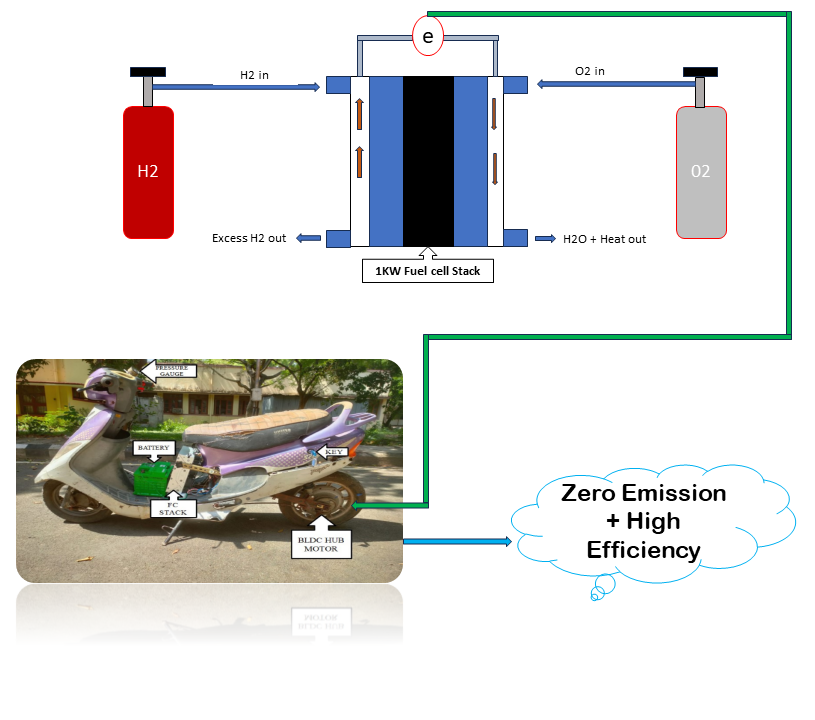
Because of their efficiency and low environmental effect, proton exchange membrane fuel cells, or PEMFCs, are discussed in this abstract as a viable renewable energy source. The paper investigates PEMFCs theoretically, delving into their electrochemical mechanisms and developing a MATLAB simulation model to verify theoretical understanding. Performance parameters such as cell voltage, current density, and power output are assessed in the simulation under various scenarios. The study reveals a number of variables, including temperature, pressure, hydrogen concentration, water quality, and more, that impact PEMFC effectiveness. The best operating conditions for greatest efficiency are found by adjusting these variables and seeing how they affect power production. Furthermore, the study evaluates PEMFC viability for electric cars and comprehends the cell's response to mechanical strain. To sum up, this study uses MATLAB simulations and theoretical analysis to comprehend PEMFC behavior. The results are validated by experiments, which adds credibility to the model. The results support the advancement of PEMFC technology and the creation of sustainable energy sources.
Total file downloads: 10